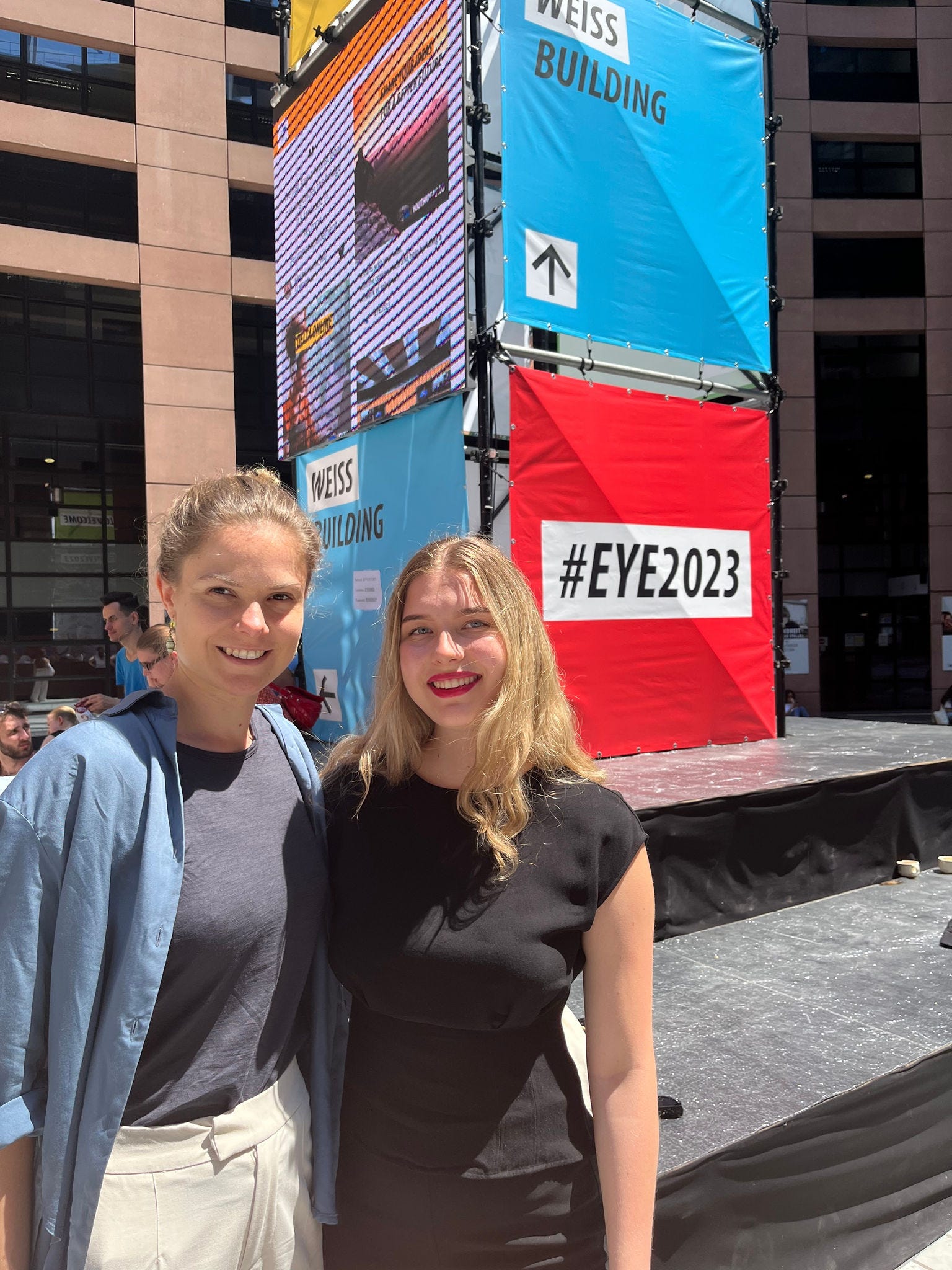Today's young people face the challenges of recovering from the traumatic impacts of COVID-19, dealing with increasing mental health issues, and navigating the current cost-of-living crisis. How can they successfully navigate through employment obstacles? Here are five takeaways from the OECD's session at the European Youth Event (EYE).
Today's young people face the challenges of recovering from the traumatic impacts of COVID-19, dealing with increasing mental health issues, and navigating the current cost-of-living crisis. As highlighted in the OECD Employment Outlook 2022, obstacles such as prolonged unemployment and disrupted opportunities for work-based learning are negatively affecting career prospects and job quality.
To bring young people into the discussions on these pressing issues, the OECD organised a panel Q&A "Career. Ready, set, go! How to improve school-to-work transitions" at the European Youth Event 2023, which brought together thousands of young people to discuss topics that affect their future. The session focused on how to help ensure a smoother transition from school to the workplace.
The panellists included Rebecca Frankum, OECD Education Policy Analyst, Sydney Heimbrock, Chief Industry Advisor for Government at Qualtrics, Marek Wallenfels, Director of Education and the Next Generation at Bertelsmann Stiftung, as well as us: Vidmantė Krušinskaitė and Finja Eilts, members of Youthwise, the OECD's Youth Advisory Board.
Colleagues can provide support on how to transfer skills onto your CV, for example from the experience gained in a volunteer position, through identifying their transferable skills.
While the discussion raised numerous significant insights from both the audience and panel, we wanted to highlight five key takeaways:
Career counselling and mentoring can have a significant impact on your future prospects
Parental influence and socioeconomic background play a significant role in shaping our future career aspirations, (explored in recent OECD research). Teachers also hold considerable sway in shaping these ambitions. However, to foster equal opportunities for all students, it is imperative that we go beyond these influences. This can be achieved by establishing accessible and free career counselling services and mentorship programmes and by ensuring education institutions actively promote them. Mentorship programmes provided by employers would offer students insights into the job market and establish a stronger connection between academia and work. For me (Vidmantė), being involved in youth NGOs offered a secure environment for experimentation and self-discovery as I gained basic job market skills and developed event management abilities. This experience allowed me to identify and pursue my preferences for further endeavours.
Apprenticeships, internships, volunteering or working while studying helps to boost career prospects, but are not equally accessible to everyone
Spoiler alert: There is no equal access to any of the above. We know that having work experience related to one's field of study is a great way to expand knowledge. As explained by Qualtrics research, apprenticeships give young people a significant confidence boost in feeling prepared to enter the job market successfully. All the panellists agreed that the goal should be to provide equal opportunity, so paid internships, for instance, should be the norm. While volunteering offers a practical way to learn skills and is a great way to discover your passions, not everyone has the financial means to spend their time without payment.
The ideal age to start career preparation is around 14
Dreams of a future career begin at a young age. There is an ongoing debate, studied by the OECD, about the perfect time to start preparing young people for their future careers. Both of us began broadening our horizons at the age of 14, through volunteering and by taking part in mentoring and exchange programmes. We believe this to be the ideal moment because we had time to enjoy being children before gradually adjusting to a new education system and starting to consider our futures.
Remote work can have a negative impact, compared to on-site learning
As an aftermath of the COVID-19 pandemic, remote work has become part of the new normal. Although this model has benefits, such as flexibility and less commute time, it can reduce the experience of mentorship in the workplace. As a young person growing up in Germany, I (Finja) found onboarding remotely was tricky. In an office, it’s easy to walk over to a colleague to ask for advice, whereas when working remotely, you need to know whom to email. My advice is to not be afraid to ask questions and to ask for a direct mentor.
Young people need not to be afraid to ask for help
Sydney Heimbrock (Qualtrics) gave great advice on the importance of seeking assistance from those in positions of authority or finding mentors among co-workers. Colleagues can provide support on how to transfer skills onto your CV, for example from the experience gained in a volunteer position, through identifying their transferable skills. This advice could also help young people decide which experiences and skills to highlight on their CV and which skills are needed to learn for a future job.
